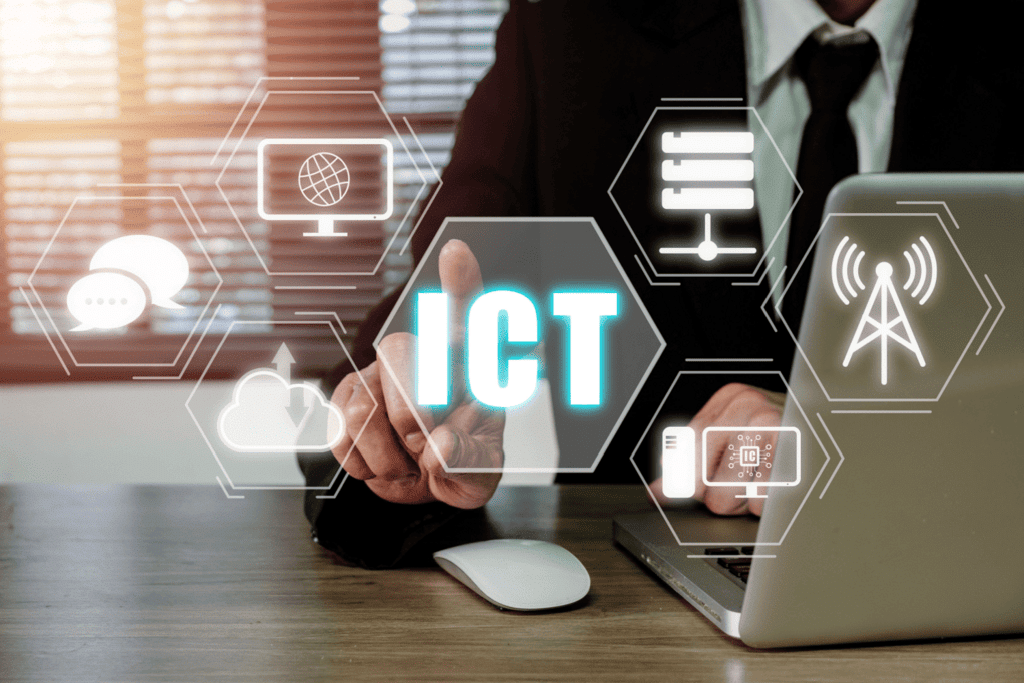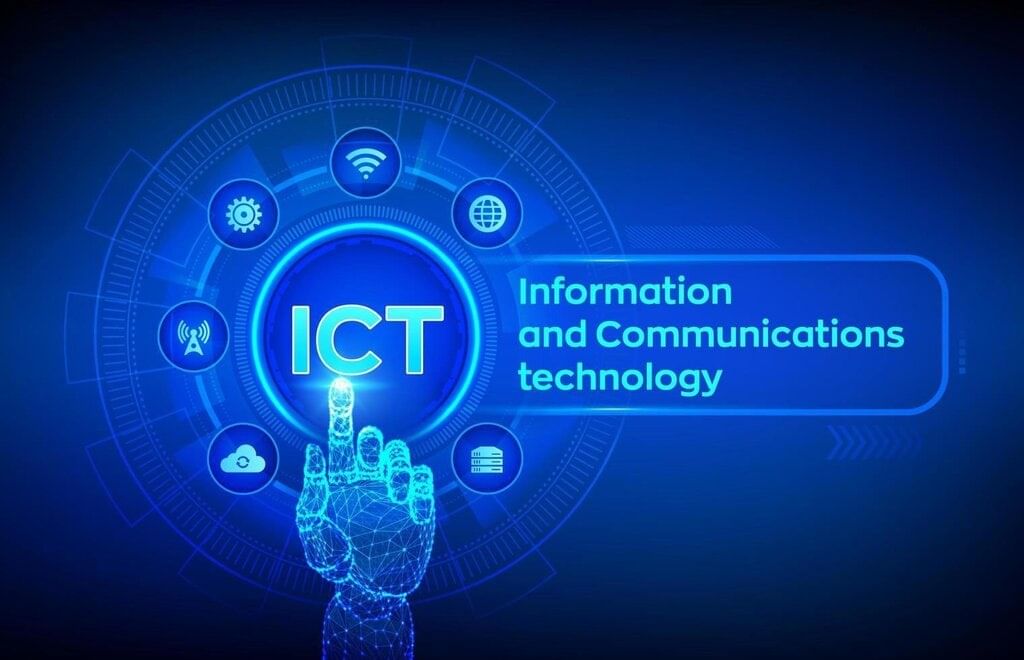Application of ICT in research - Research Aptitude Notes
| Table of contents |

|
| Application of Information and Communication Technology (ICT) in Research |

|
| Level 1: Pre-Data Analysis Phase |

|
| Level 2: Data Analysis Phase |

|
| Level 3: Post Data Analysis Phase |

|
Application of Information and Communication Technology (ICT) in Research
Revolutionising Information and Communication Technologies (ICT's) remains the top agenda of many developing countries including India. Much stress has been made to facilitate the application of ICT's in developmental planning and research.
Application of ICT's in higher education and research is seen as another potent and convincing paradigm for development in developing countries.

Despite its polemic nature, ICTs have undoubtedly impacted the teaching and learning process in a positive manner. Human beings have an advanced skill that allows them to share knowledge with others and the use of ICTs to make this transfer and sharing of knowledge all more interesting is, indeed, praiseworthy.
ICTs enhance our access to knowledge as well as act as a supplement of knowledge that we gather through traditional sources. In this post, we will focus more on the application of ICT's in academic research at the universities.
Level 1: Pre-Data Analysis Phase
Role of ICTs in Pre-Data Analysis Phase: This includes the application and use of ICT tools during the research process before one reaches the data analysis phase. It is quite appalling to observe the ways in which technological tools can be used to achieve the pre-data analysis research goals. Undeniably, computers and the internet have made a remarkable impact in this area. Some of the ways in which ICT's can be used during the pre-data analysis phase are:
- ICT's can be very helpful for the literature review of any topic in any discipline. The college libraries have adequate material to help research scholars for writing a dissertation; yet to incorporate the fast-paced global changes into one’s writing and literature review, the internet is highly reliable.
- Some universities have e-library (digital library) access as well. This saves time and effort for the researchers to travel back and forth between two spaces.
- Portals like e-Gyankosh, JStor, Google Scholar, Shodh Ganga, Microsoft Academic Search etc. are very helpful to do a rich literature review. There are several other online repositories of multi-disciplinary literature such as SSRN, EPW, and Encyclopaedia Britannica among others.
- ICT tools are helpful for the process of data collection. Surveys can be done online using Google forms. To conduct a large scale study, tools like survey monkey and Qualtrics are very helpful. These tools help to accommodate questions based on conditions, logic and do experiment trials.

- Software like Mendeley is very useful for the purpose of the literature track. Mendeley helps to manage, share and find literature content. Such a thing was not possible in the past.
- Microsoft Word also has features that help to manage content and dissertation writing. Many college professors ask for write-ups and data via email. They send back reviewed files to the scholars with suggested changes and suggestions. The ‘track changes’ feature in MS-Word saves time and effort of both researchers and mentors in terms of avoiding unnecessary meetings.
- Features like Google translator have profound value for international students and students coming from regions where different language or dialects are spoken.
- There are mobile applications that allow scholars to connect and share knowledge with each other.
Level 2: Data Analysis Phase
Role of ICTs in Data Analysis Phase: The role of ICT's during data analysis is immense. It can be very useful for qualitative as well as quantitative data analysis.
- Quantitative data analysis: involves varied techniques such as regression models, t-test, analysis of variance, path analysis, hierarchical regression analysis, linear modelling etc. All this requires using a huge database collected at national and state levels. Some statistical software that helps is STATA, SPSS (Statistical Package for Statistical Computing), MATLAB (The Mathworks), R (R Foundation for Statistical Computing), SAS (Statistical Analysis Software), and GraphPad Prism among others. Such software makes it quite easy to run regressions and make data analysis more comprehensive for the researcher as well as a general audience.

- Qualitative data analysis: also makes use of several ICT tools. Tools like recorder have proved to be very valuable for keeping all the information stored collected at the time of multiple interview schedules. Recorders make it Online Classroom Program easy for the ethnographers to listen to the interviews. In terms of storing information, software like Google Drive, Dropbox etc. are very helpful. These give access to multiple parties including the researcher, mentors, academic friends etc. To make qualitative data more scientific and objective, data analysis tools like ATLAS.ti, SPSS Text Analysis, NVivo, Transana (used for video transcribing) etc. are widely used.
Level 3: Post Data Analysis Phase
Role of ICTs in Post-data analysis Phase: Once the data has been collected and data analysis process is over, ICTs can be applied in the post-data analysis phase as well. Some of the ways in which ICTs can be used during the post-data analysis phase are:
- ICTs such as a computer, internet, online journals, newspaper etc. are a good platform to share findings with academia as well as the general audience. A lot of policy decisions are made in accordance with the new and worthwhile findings made by individual researchers in various fields. An online journal such as Economic and Political Weekly, The Social Science, Idea for India, ScienceOpen are good mediums for getting one’s work published.
- There are collaborative writing tools (Typewrite, Upwork) that are widely used in cases when several researchers wish to write and combine studies.
- In terms of bibliography and referencing, ICT tools like advanced versions Microsoft Office Packages are very useful.
- ICT's have proved to be very useful for the purpose of plagiarism check as well. Some tools used for this are Plagiarism Checker, Anti Plagiarism, Plagiarisma, so on and so forth.
|
12 videos|42 docs|9 tests
|
FAQs on Application of ICT in research - Research Aptitude Notes
| 1. What is the role of ICT in enhancing research methodologies? |  |
| 2. How can researchers utilize social media for research purposes? |  |
| 3. What are some ethical considerations when using ICT in research? |  |
| 4. What are the advantages of using online databases for literature review in research? |  |
| 5. How does ICT support collaborative research efforts? |  |















